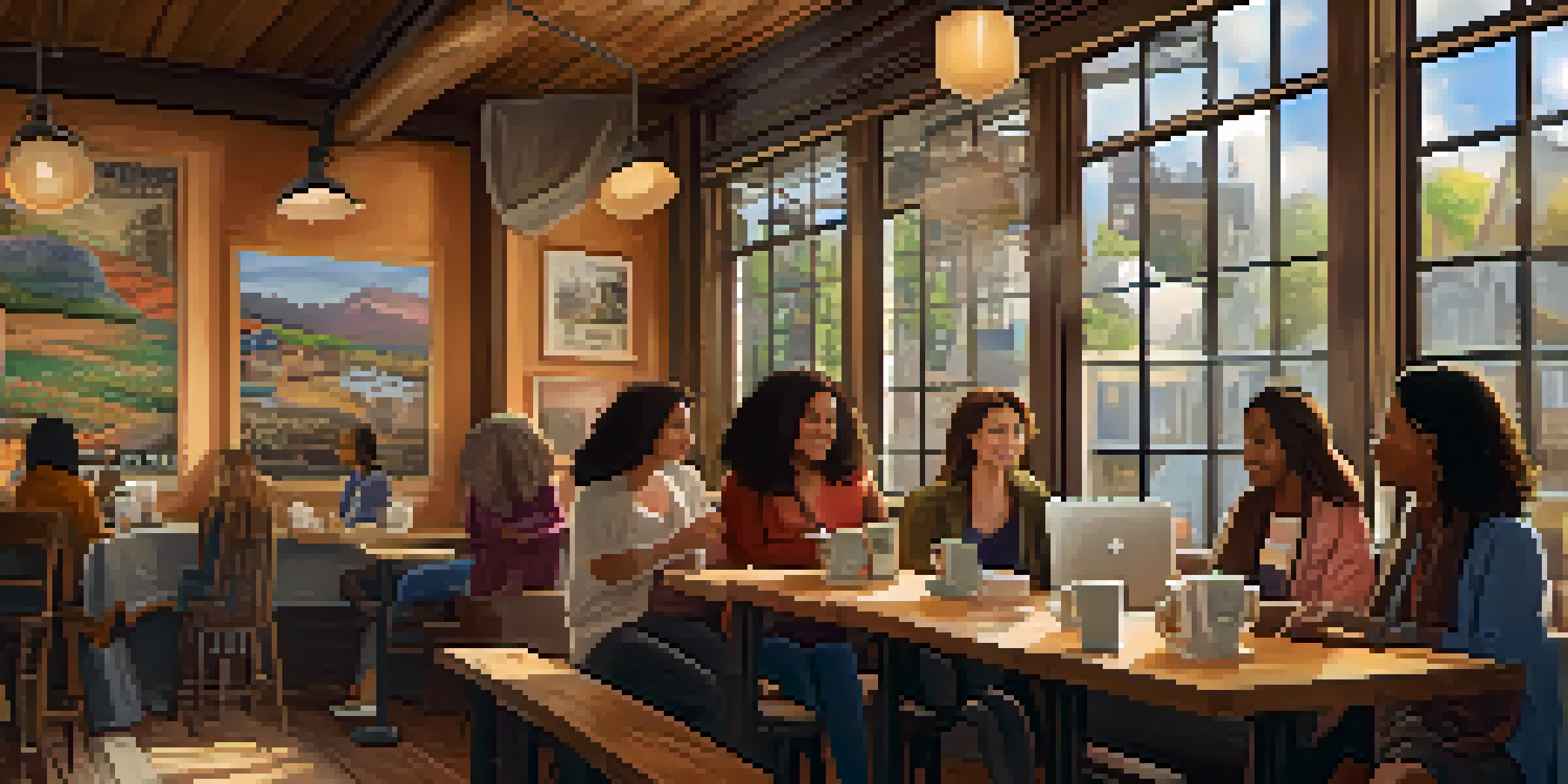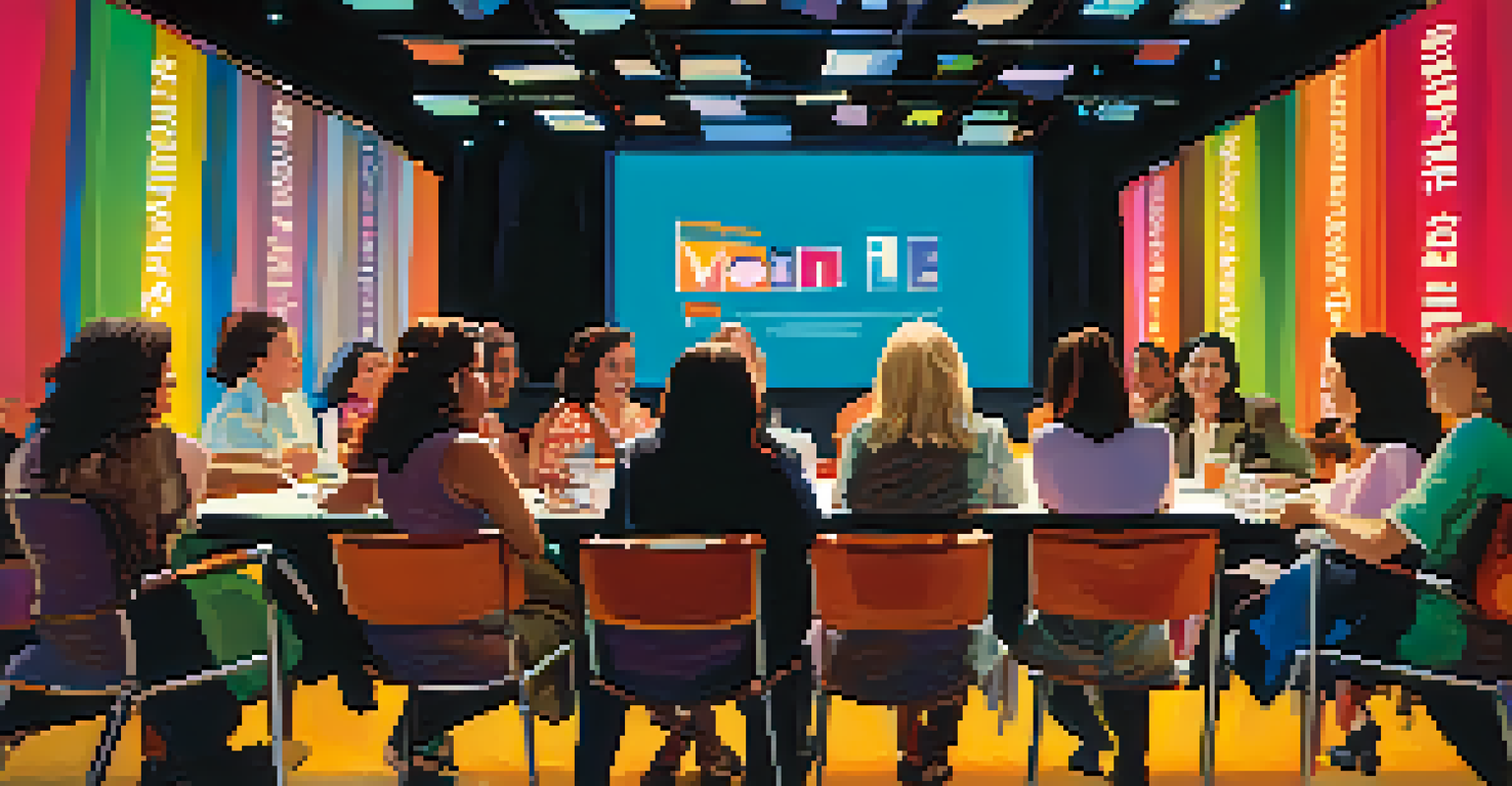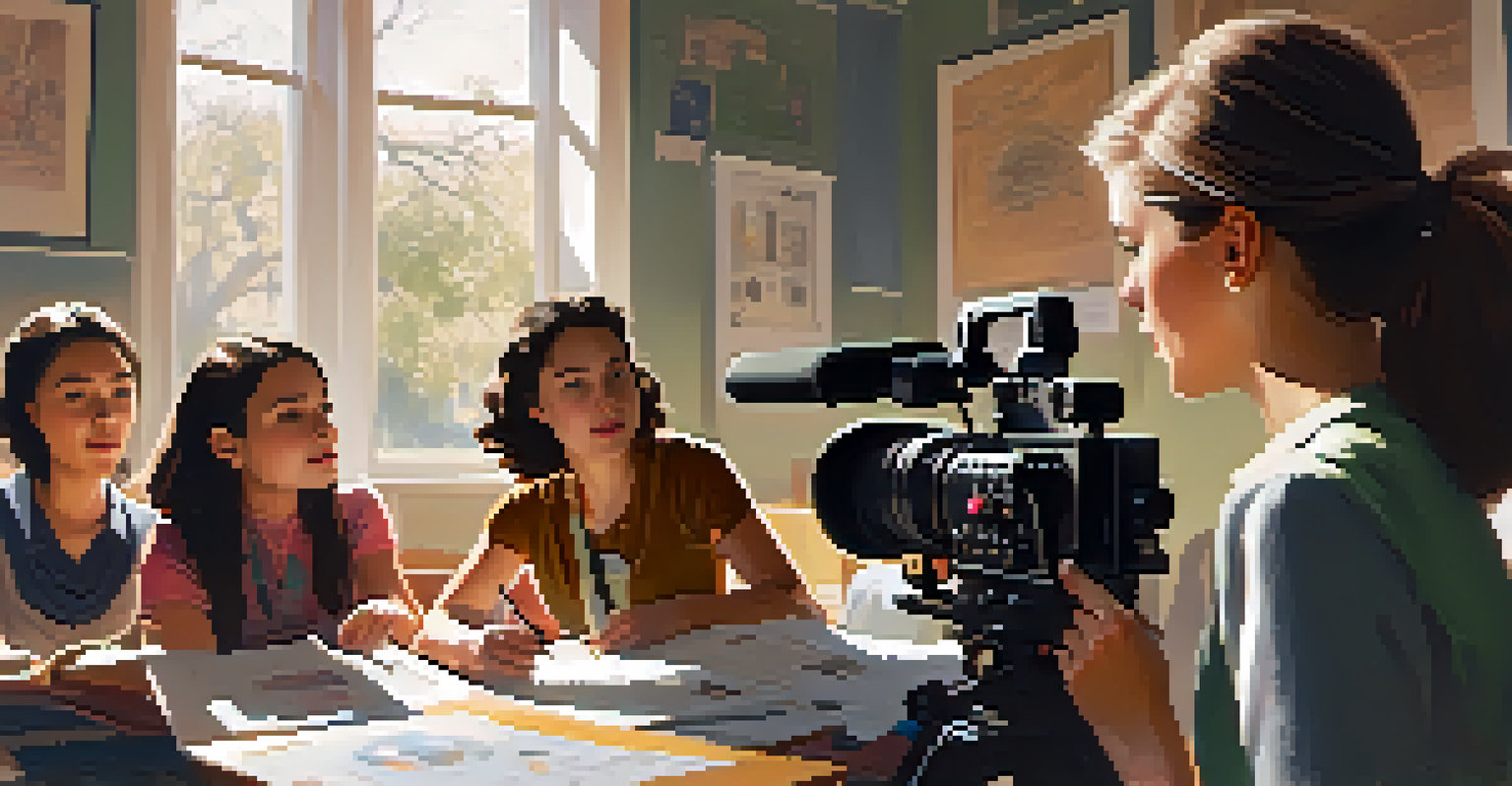Women in Film Criticism: Breaking Barriers and Stereotypes

The Historical Landscape of Film Criticism
Historically, film criticism has been dominated by male voices, often sidelining women's perspectives. This trend can be traced back to the early days of cinema, where societal norms restricted women's roles, limiting them to behind-the-scenes positions. As a result, the narratives and viewpoints presented in mainstream cinema often reflected a singular male perspective.
The best critic is not the one who follows the crowd but the one who dares to voice their own perspective, even if it goes against the grain.
However, the landscape has begun to shift dramatically. In recent years, more women have stepped into the spotlight, challenging the status quo and reshaping the discourse around film. This change is not just about representation; it's about enriching the conversation with diverse viewpoints that address the nuances of gender, race, and identity.
Understanding this historical context is crucial to appreciate the strides women are making today. Their contributions not only diversify the field but also elevate the quality of film criticism, ensuring a broader range of stories and experiences are acknowledged and celebrated.
Notable Women Film Critics Who Paved the Way
Some iconic women in film criticism have played pivotal roles in shaping the industry. Critics like Pauline Kael, who wrote for The New Yorker, became known for her incisive and passionate reviews that challenged conventional views. Her work inspired countless others to pursue careers in film criticism, showcasing that women's voices are not just valid but necessary.

Another influential figure is Lisa Schwarzbaum, who brought a fresh perspective to film critique in the age of digital media. Her ability to blend personal narrative with critical analysis has paved the way for a new generation of critics who prioritize authenticity and relatability in their work. These women have shown that film criticism can be as much about personal experience as it is about technical analysis.
Women Reshape Film Criticism
The rise of women in film criticism is diversifying the dialogue and enriching the industry with varied perspectives.
Through their groundbreaking work, these critics have opened doors for future generations, proving that women can not only participate in film criticism but lead the conversation. Their legacies inspire young critics to embrace their unique perspectives and challenge the traditional narratives in cinema.
The Impact of Social Media on Women Critics
The rise of social media has transformed the landscape of film criticism, providing a platform for diverse voices to be heard. Women critics, in particular, have leveraged platforms like Twitter, Instagram, and TikTok to share their insights and connect with wider audiences. This accessibility has democratized film criticism, allowing anyone with a passion for film to contribute to the dialogue.
Women have always been a part of cinema, behind the scenes and in the audience, but now we are taking our rightful place in the conversation.
Social media also offers a space for women to discuss their experiences and challenges in the industry. By sharing their stories, they create a sense of community and support, helping to break down the barriers that have historically oppressed women's voices. This collective empowerment fosters an environment where women can thrive and be recognized for their contributions.
Additionally, the feedback loop created by social media allows for real-time engagement with audiences, making it easier for women critics to refine their voices and challenge stereotypes. This interaction not only enhances their credibility but also establishes them as key players in the evolving conversation around film.
Challenging Stereotypes in Film Criticism
Despite the progress made, women in film criticism still face entrenched stereotypes that can hinder their acceptance. Many are often dismissed as overly emotional or biased, a narrative that undervalues the validity of their insights. These stereotypes can create barriers, making it difficult for women to gain the respect and recognition they deserve in a male-dominated field.
Challenging these stereotypes is essential for fostering a more inclusive environment in film criticism. Women critics are increasingly vocal about their experiences, advocating for a shift in perception that recognizes the depth and breadth of their analyses. By confronting these biases, they are not only validating their own experiences but also paving the way for future critics.
Social Media Empowers Women Critics
Platforms like social media provide women critics with a space to share their insights, fostering community and support.
Through their work, women are proving that criticism can be both passionate and analytical—qualities that should be celebrated, not criticized. By breaking down these stereotypes, they are redefining what it means to be a film critic and encouraging a more equitable industry.
The Role of Women in Film Festivals
Women are taking on increasingly significant roles within film festivals, both as critics and organizers. Festivals like Sundance and Cannes have made strides to include more female voices in their programming, showcasing films directed by women and featuring female critics on panels. This visibility is crucial for promoting diverse narratives and perspectives within the industry.
Moreover, women in festival leadership positions are championing initiatives that support emerging female filmmakers. By creating opportunities for networking and showcasing talent, these women are not only elevating the voices of their peers but also inspiring a new generation of female filmmakers and critics. This supportive environment encourages collaboration and innovation.
The influence of women in film festivals extends beyond the events themselves, creating a ripple effect throughout the industry. As more women gain recognition and prominence, the film criticism landscape becomes richer and more varied, leading to a more comprehensive understanding of cinema as a whole.
The Future of Women in Film Criticism
Looking ahead, the future for women in film criticism appears promising, with a growing movement advocating for equity and representation. New platforms and publications are emerging that prioritize female voices, providing spaces where women can express their unique insights without fear of judgment. This shift is crucial for fostering a more inclusive film criticism landscape.
Education and mentorship programs aimed at young women are also gaining traction, equipping them with the tools they need to succeed in the industry. By investing in the next generation of female critics, the industry is nurturing a diverse pool of talent that will continue to challenge stereotypes and break barriers. This focus on empowerment is vital for sustaining progress.
Challenging Stereotypes in Criticism
Women are actively confronting stereotypes in film criticism, advocating for recognition and respect in a traditionally male-dominated field.
As women continue to rise in prominence within film criticism, their impact will undoubtedly shape the narratives we see on screen. With each new voice that emerges, the industry moves closer to a more equitable representation of all perspectives, enriching our collective experience of cinema.
Conclusion: Celebrating Women’s Contributions
In summary, the contributions of women in film criticism cannot be overstated. Their efforts are breaking down barriers, challenging stereotypes, and enriching the discourse around cinema. As we celebrate their achievements, it’s essential to recognize the ongoing challenges they face and continue advocating for equality in the industry.
By amplifying women's voices and supporting their work, we can help foster a more inclusive environment that values diverse perspectives. This not only benefits women in film criticism but also enhances the overall landscape of cinema, making it a richer, more engaging experience for audiences everywhere.

As we look towards the future, let’s continue to champion the women who are paving the way in film criticism. Their insights and perspectives are vital to understanding the complexities of film, and it’s through their voices that the industry can continue to evolve and thrive.